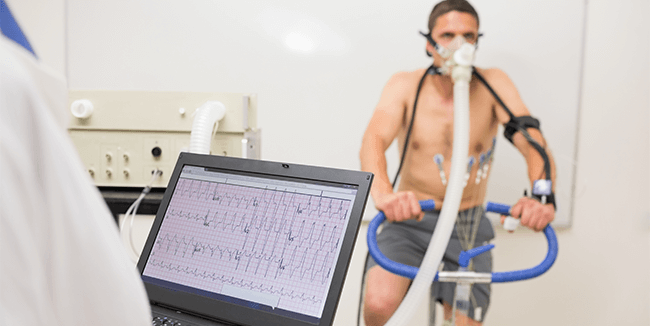This systematic review and meta-analysis examines the effects of respiratory muscle training (RMT) on respiratory function, respiratory muscle strength, and exercise tolerance in patients post stroke. It assesses the role of RMT as a potential coadjutant modality in the neurological rehabilitation of patients post stroke, supporting functional recovery.
Key Findings
- Respiratory muscle weakness contributes to exercise intolerance and reduced ability to deal with activities of daily livings in patients post stroke.
- This systematic review analyzed all RCTs that studied the effect of respiratory muscle training (RMT) in patients post stroke up to November 2015.
- 7 studies met the eligibility criteria and were included in the analysis.
- RMT has a significant effect on maximal inspiratory pressure, respiratory function and exercise tolerance.
- RMT effectively improves respiratory function, respiratory muscle strength and exercise tolerance in patients post stroke.
Study Methods
All randomly controlled trials (RCTs) up to November 2015, that studied the effects of RMT in patients post stroke and compared these to a control group were included.
Study Results
Out of the 309 abstracts identified by the search criteria, seven publications met the eligibility criteria and were further analyzed. In all studies, 3 to 18 weeks of RMT were performed, with a frequency of three to six sessions per week, and an intensity of 30% to 60% of MIP. Maximal inspiratory pressure (MIP), forced expiratory volume in 1 s (FEV1), forced vital capacity (FVC) and exercise tolerance improved significantly in response to RMT with an intensity of at least 30% of MIP. MIP improved by 40% on average.
In conclusion, RMT leads to clinically meaningful improvements of respiratory muscle strength in patients post stroke, improvements in respiratory function, exercise tolerance and thus ADL.
References
Gomes-Neto M., et al. Effects of Respiratory Muscle Training on Respiratory Function, Respiratory Muscle Strength, and Exercise Tolerance in Patients Poststroke: A Systematic Review With Meta-Analysis. Arch Phys Med Rehabil. 2016;97(11):1994-2001.

0 Comments